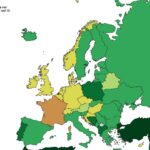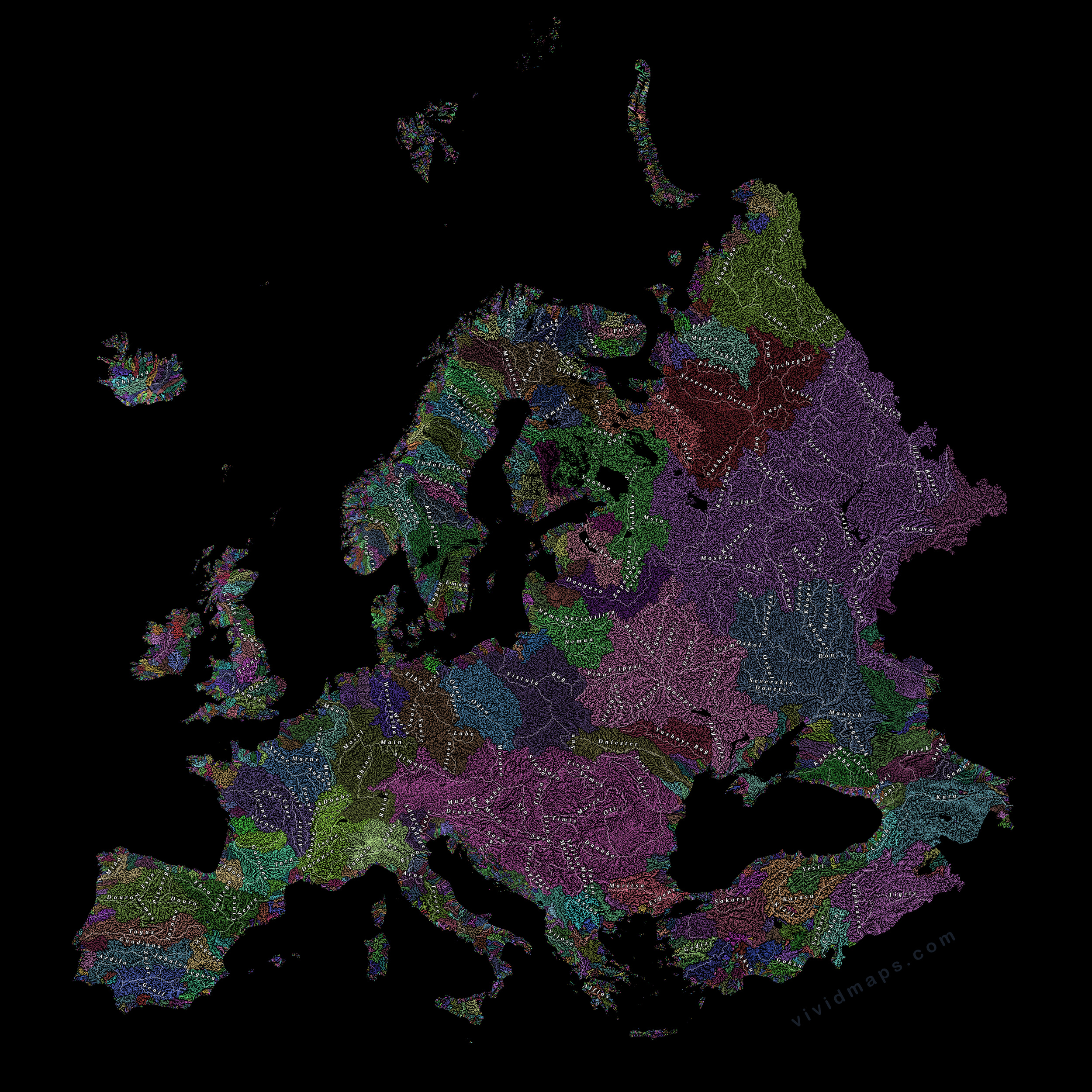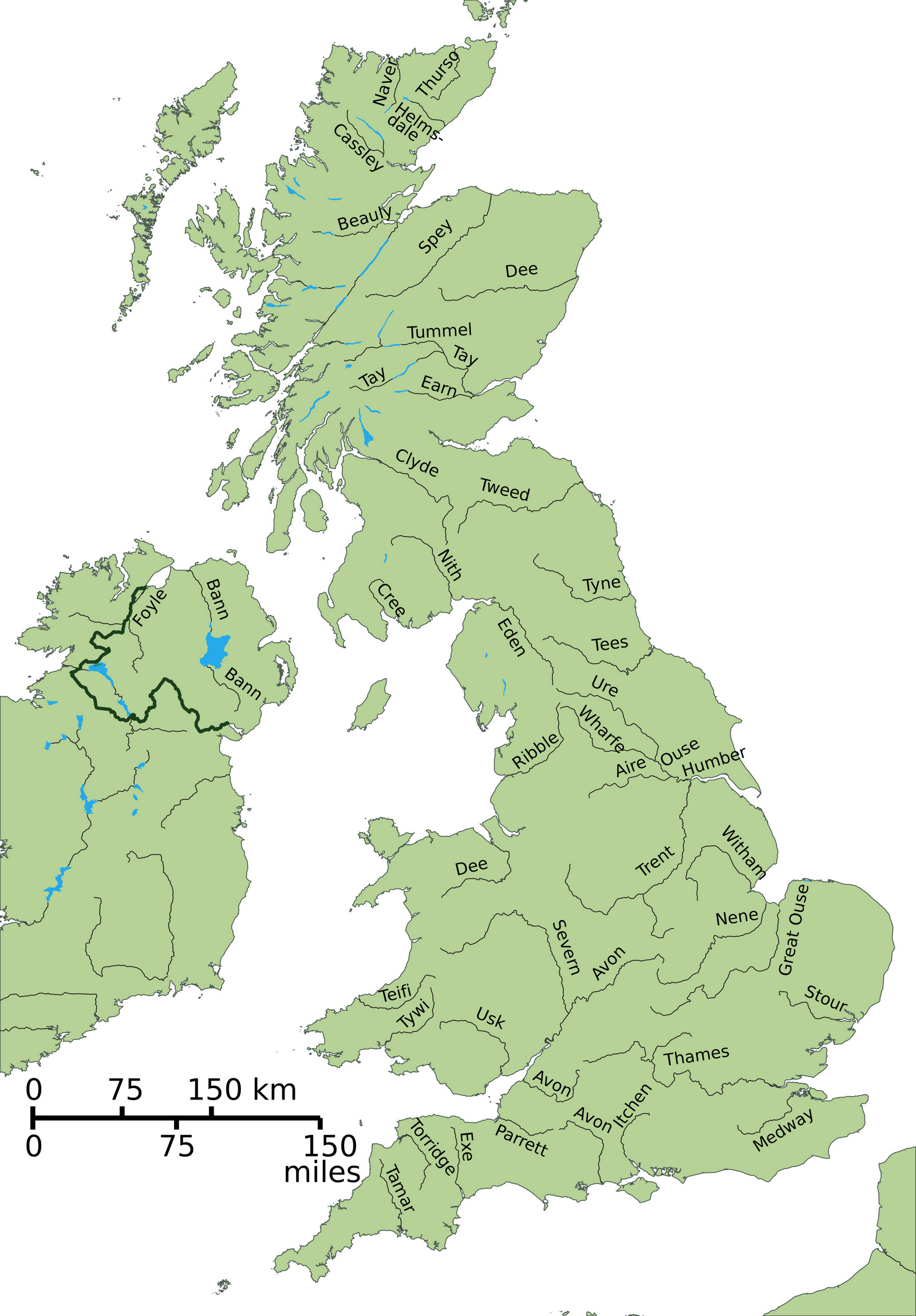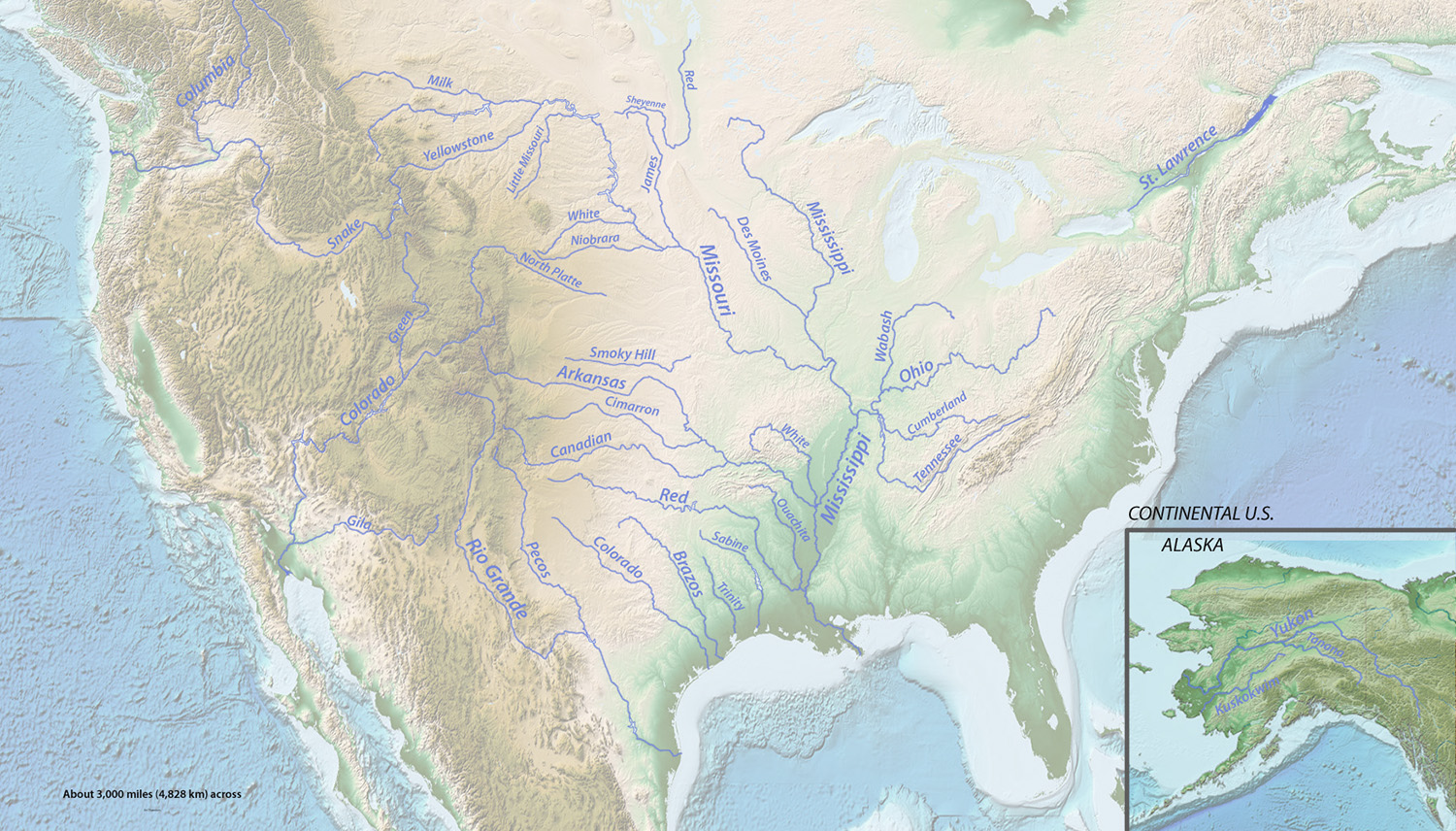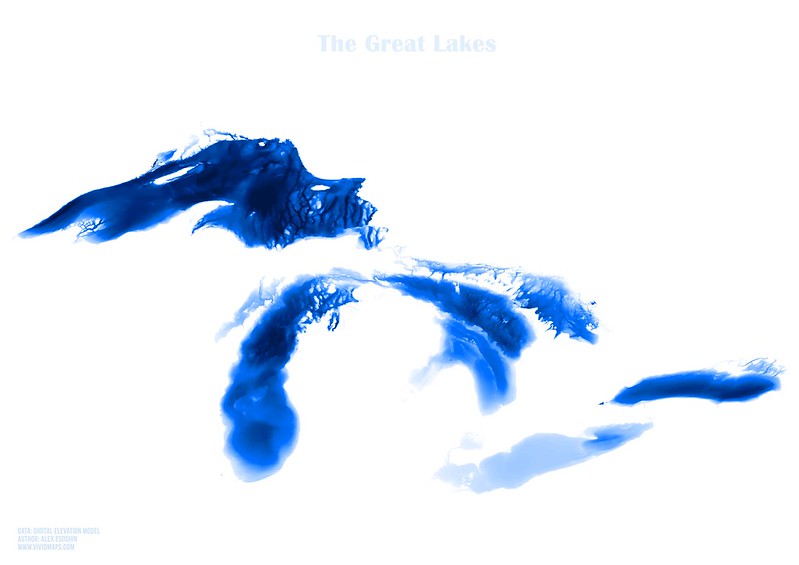Europe’s Inland Waterways Mapped
Europe has an extensive network of inland waterways, which includes rivers, canals, and lakes. These waterways have played an important role in the economic development of the region, facilitating transportation and trade throughout history.
The major river systems in Europe include the Danube, Rhine, and the Rhone. The Danube is the second longest river in Europe and flows through ten countries, providing a key transportation link between Central and Eastern Europe. The Rhine, on the other hand, is one of the most important commercial waterways in Europe and connects the industrial regions of Germany, Belgium, and the Netherlands with the North Sea. The Rhone is another significant river in Europe, running through Switzerland and France, and providing a vital link to the Mediterranean Sea.
In addition to rivers, Europe also has an extensive network of canals, which were built to connect waterways and provide additional transportation routes. The Canal du Midi in France, for example, connects the Atlantic Ocean with the Mediterranean Sea, while the Canal de Briare in France connects the Seine River with the Loire River.
Below is detailed map of Europe’s inland waterways.
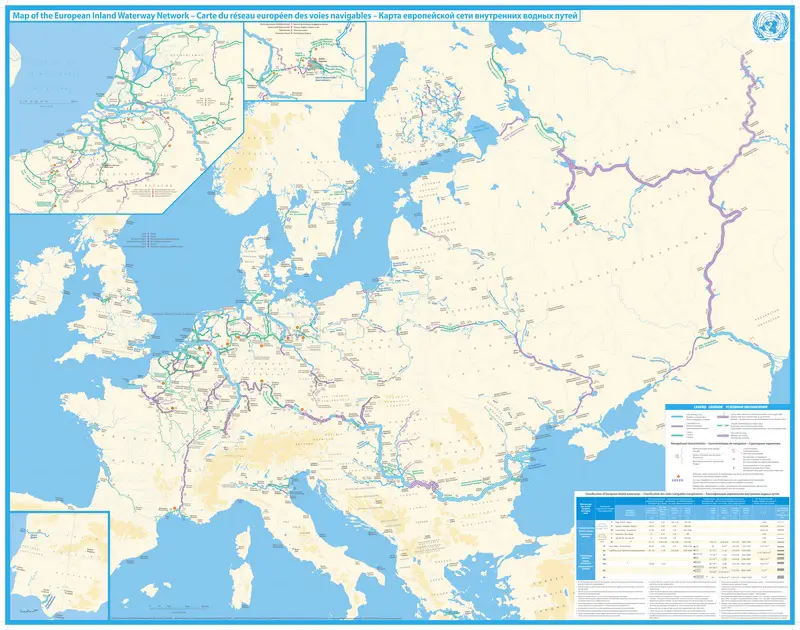
Which European country has the longest waterways?
Russia has the longest waterways in Europe. Its vast network of rivers and canals covers over 102,000 kilometers, including the Volga, the Don, and the Kama rivers.
The longest canal in Europe is the Volga–Baltic Waterway, which is located in Russia and connects the Volga River with the Baltic Sea. It is around 1,100 kilometers long and includes 19 locks. This canal is an important transportation route for cargo, connecting the country’s interior with the Baltic ports.
It is worth noting that when it comes to inland waterways within the European Union, the Netherlands has the most extensive network. The country’s waterways cover around 7,000 kilometers and are vital for the transportation of goods, especially for its port cities like Rotterdam and Amsterdam.
Major inland waterways of Europe
- The Danube River: The Danube is the second-longest river in Europe and flows through ten countries, providing a key transportation link between Central and Eastern Europe. It runs from Germany’s Black Forest region to the Black Sea, passing through cities such as Vienna, Budapest, and Belgrade.
- The Rhine River: The Rhine is one of the most important commercial waterways in Europe and connects the industrial regions of Germany, Belgium, and the Netherlands with the North Sea. It flows from the Swiss Alps to the Netherlands, passing through cities such as Basel, Strasbourg, and Cologne.
- The Seine River: The Seine is a major river in France, flowing through Paris and eventually into the English Channel. It is a significant transportation and tourism hub, and is lined with famous landmarks such as the Eiffel Tower and Notre-Dame Cathedral.
- The Volga River: The Volga is the longest river in Europe and is a crucial transportation link in Russia. It flows from the Valdai Hills to the Caspian Sea, passing through cities such as Moscow and Volgograd.
- The Elbe River: The Elbe is one of the most important rivers in Central Europe and runs from the Czech Republic through Germany to the North Sea. It is an important transportation route for cargo and connects major industrial regions in Germany.
- The Rhone River: The Rhone is another significant river in Europe, running through Switzerland and France, and providing a vital link to the Mediterranean Sea. It is navigable for large cargo ships up to the city of Lyon.
These inland waterways play a crucial role in Europe’s economy, providing an efficient and environmentally friendly mode of transportation for goods and people, as well as supporting tourism and recreational activities.



